News
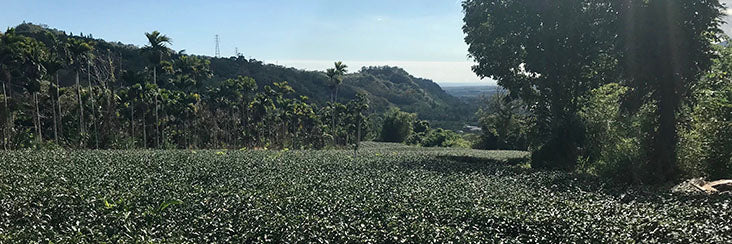
Red Oolong Tea: Gem Of Taiwan's Southeast Coast
Red Oolong offers a smooth, balanced, mildly sweet, rich but not quite bold flavor profile, with elements of fruit compote, pumpkin pie, and a hint of dried flowers. This ultra-friendly character, combined with the fact that almost all Red Oolong is cultivated naturally on the southeast coast of Taiwan, facing the wide open Pacific, where the sky reminds a North American of the northern west coast, is no wonder why it is rapidly gaining popularity on the international market. Once again, Taiwan leads the way in Oolong Tea innovation!
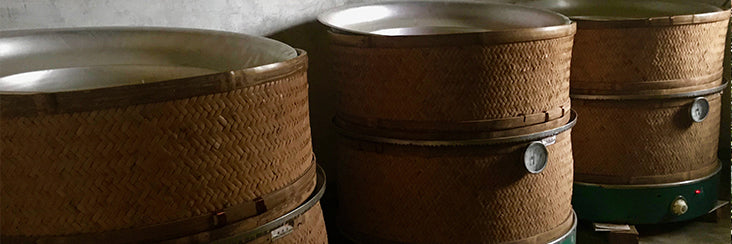
The World's Largest Oolong Tea Competition
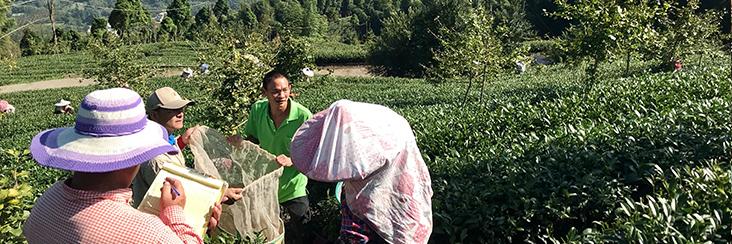
Shan Lin Xi Winter Harvest Pictorial
Above we see a local tea picker turning in freshly picked leaves to be weighed and recorded for commission. These new-growth, tender leaves were harvested on a beautiful sunny day at about 1500 meters elevation in the Shan Lin Xi tea growing region in southern Nantou County, central Taiwan.
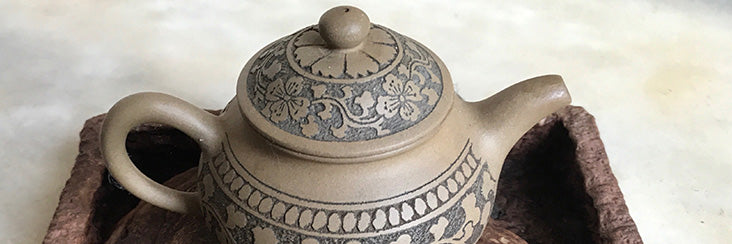
Behind The Scenes Of A Taiwan TV News Show
Eco-Cha is featured on a Taiwan TV News station's lifestyle program called "Building Dreams For A New Taiwan" (築夢新台灣) broadcasting tonight. When the station called to notify us of the broadcast, I was prompted to go back take a look at the behind-the-scenes snapshots I took during the shoot. I discovered that they captured a personal story that I'm inspired to share.

Eco-Cha Shares Tea At The First Annual Portland Tea Festival
Eco-Cha looks forward to further collaborations with these pioneering artists of fine wood-fired tea wares, and hopefully we will even get to make an appearance at the PDX Tea Fest in years to come. To show our enthusiasm, we will share the coupon code here as well — it offers a single purchase 20% discount off anything in our store! Let's all work together in cultivating a global tea culture!
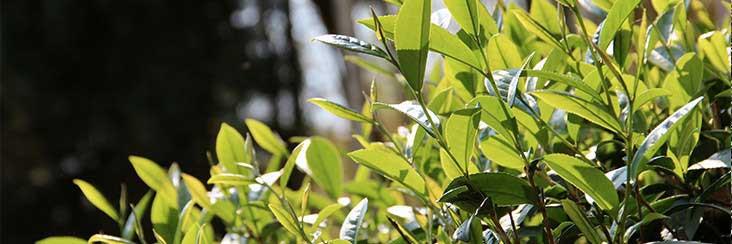
Roots Revisited For Early Spring Tea Harvest
Mr. and Mrs. Chen were lucky to have chosen April 10 for the harvest of the small plot of Jin Xuan they manage for their childhood friend and tea partner. It was sunny and breezy, perfect weather for harvesting spring tea!
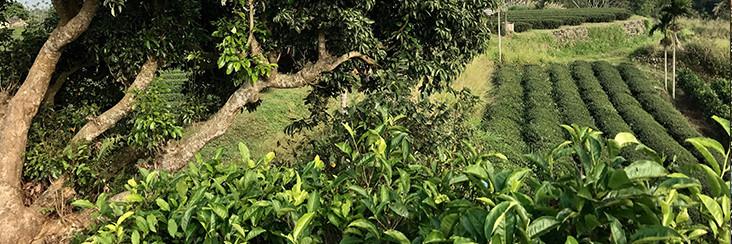
Organic Heavy Roast Oolong: An Eclectic Tea Making Process
This batch of tea was harvested in 2012 and only reached completion of its curing process in 2016. This artisan has taken tea making to another level. These processing and curing methods are unique in that they are an integration of traditional and modern tea making methods that produce a character of tea reminiscent of Muzha Tieguanyin from Northern Taiwan. It is not comparable however, given that the tea types used and the processing methods are quite different. It is simply the character and flavor notes that are experienced in brewing a pot of these tea leaves that bring a traditional Taiwanese Tieguanyin Oolong to mind.
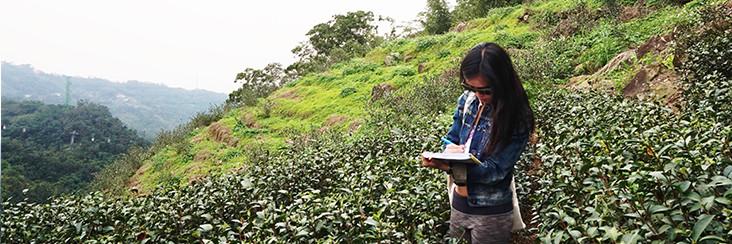
Eco-Cha Represents Taiwan's Artisan Tea Culture
Dana Ter, freelance writer and staff reporter for the Features section of the Taipei Times, recently approached Eco-Cha to be a subject of a piece she wrote on Taiwan's artisanal tea culture. We happily cooperated, and responded to her request to visit tea farms in the Taipei area by taking her to meet two tea farmers whom we've befriended in recent years. It turned out to be just what Dana was looking for — tea producers who represent the boutique artisan tea culture in Taiwan.
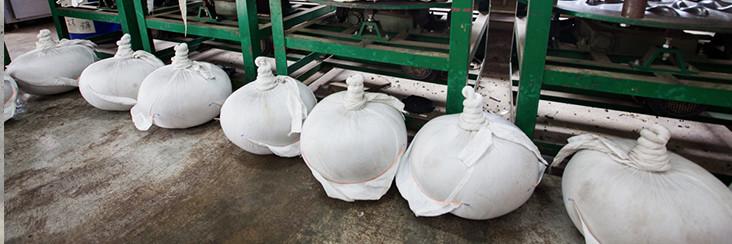
Video of Modern Oolong Tea Making
We are excited to share this video we recently made that shows all the steps involved in making Oolong tea. We were inspired to make this simple documentary film after we contributed an extensive, detailed article to WORLD OF TEA on the machines that have been invented in Taiwan for modern Oolong Tea processing.
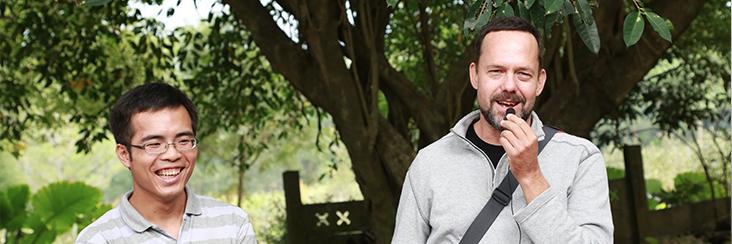
Rebirth Of An Organic Tea Farm
This farm is now moving into its third year of a newly planted crop, and is just beginning to yield a harvest. Rocky has a lot of work ahead of him, but we are all confident that this new generation with a new scientific approach to farming as well as a small but growing network of farmers to share experience with, that he will succeed in his efforts. I will be sure to keep in closer contact with Rocky and hopefully Eco-Cha will have a chance to share the tea from this farm that was brought back to life!
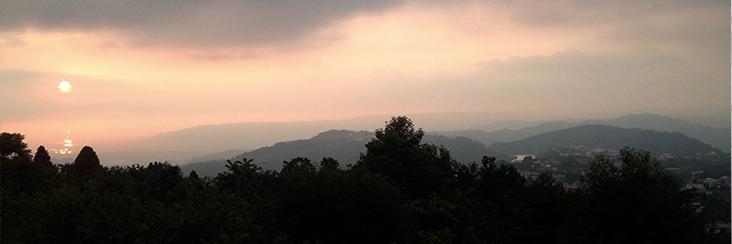
Lugu's Youth Brew Tea For International 4H Event
Lugu's 4H Project recently hosted around 70 international 4H members for their 2nd Annual Asia Network Board Meeting. This year the Lugu Elementary School, in cooperation with National Taiwan University Tea Research Center prepared a select group of students to brew tea for the guests. These students have been practicing their tea brewing etiquette along with English poetry recitals and conversation since last spring.
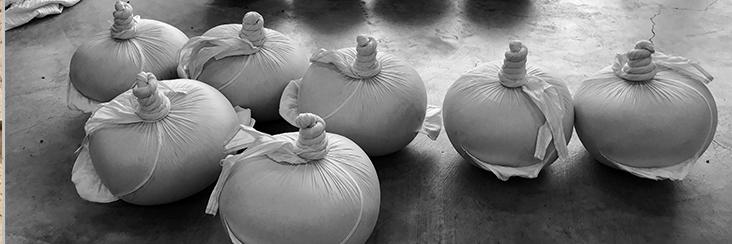
Year Two Of The Eco-Cha Tea Club
We invite you to join us as we continue on our endless journey to seek out and discover singular seasonal batches of tea that are one-of-a-kind specialties, and not available anywhere else. We will continue to tell the story of each batch of tea we select, sharing photos that offer windows into this rich world of Taiwanese teas and the culture in which is flourishes. We tell you all about the tea, where it comes from, how it's made, and share a sip-along-with-us tasting video with each unique batch. Come along for the adventure with the Eco-Cha Tea Club as we make another cycle around the sun, drawing us to remote mountainous regions around the beautiful island of Taiwan!

